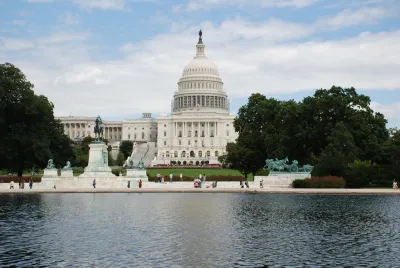A couple of questions are fundamental to the debate about the housing affordability crisis.

[Updated: August 19, 2019]
An article by Solomon Greene raises the question of whether deregulation can solve the affordable housing crisis, and, more specifically, whether the federal government can play a hand in that deregulation.
The Trump administration is making at least initial gestures toward trying to do just that. In June, President Donald Trump signed an executive order establishing the "White House Council on Eliminating Regulatory Barriers to Affordable Housing." Democratic candidates for president are also pushing for fewer regulations as one tool for combating the rising costs of housing. The New York Times Editorial Board yesterday announced its support published an editorial supporting the idea of more construction as one potential solution to housing affordability.
"This embrace of deregulation merits particular praise because the states most resistant to allowing housing construction are the strongholds of the Democratic Party, in the Northeast and along the Pacific Coast, and the most resistant voters are the wealthy residents of those states who provide so much of the funding for Democratic presidential campaigns," according to the editorial.
Returning to the earlier article, Solomon builds a case that the federal government has multiple avenues by which it can influence the housing market, including subsidies, ending or prohibiting exclusionary barriers, identifying the helpful regulations among the harmful, and supporting bottom-up initiatives. On that last point, Solomon writes:
Effective policies will also require a strong emphasis on community engagement from the outset, and ongoing monitoring of implementation and evaluation of outcomes. The federal government used this model under the Sustainable Communities Initiative and began to apply it more broadly through the US Department of Housing and Urban Development’s Affirmatively Furthering Fair Housing rule before Secretary Carson suspended its implementation. Mining lessons from each of these efforts will be key to the success of new initiatives.
FULL STORY: Can We Deregulate Ourselves out of the Affordable Housing Crisis?

Analysis: Cybertruck Fatality Rate Far Exceeds That of Ford Pinto
The Tesla Cybertruck was recalled seven times last year.

National Parks Layoffs Will Cause Communities to Lose Billions
Thousands of essential park workers were laid off this week, just before the busy spring break season.

Retro-silient?: America’s First “Eco-burb,” The Woodlands Turns 50
A master-planned community north of Houston offers lessons on green infrastructure and resilient design, but falls short of its founder’s lofty affordability and walkability goals.

Test News Post 1
This is a summary

Analysis: Cybertruck Fatality Rate Far Exceeds That of Ford Pinto
The Tesla Cybertruck was recalled seven times last year.

Test News Headline 46
Test for the image on the front page.
Urban Design for Planners 1: Software Tools
This six-course series explores essential urban design concepts using open source software and equips planners with the tools they need to participate fully in the urban design process.
Planning for Universal Design
Learn the tools for implementing Universal Design in planning regulations.
EMC Planning Group, Inc.
Planetizen
Planetizen
Mpact (formerly Rail~Volution)
Great Falls Development Authority, Inc.
HUDs Office of Policy Development and Research
NYU Wagner Graduate School of Public Service




























